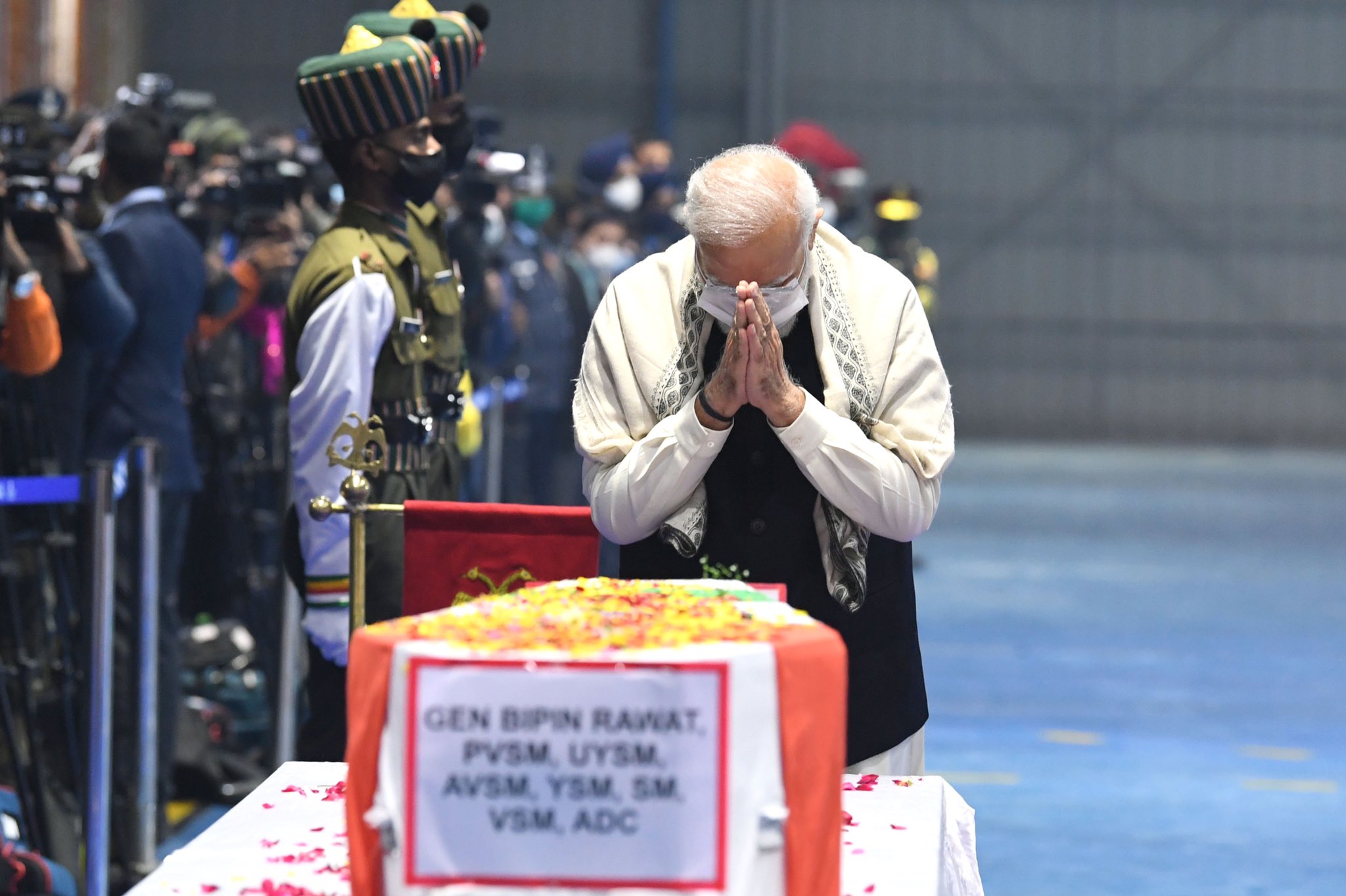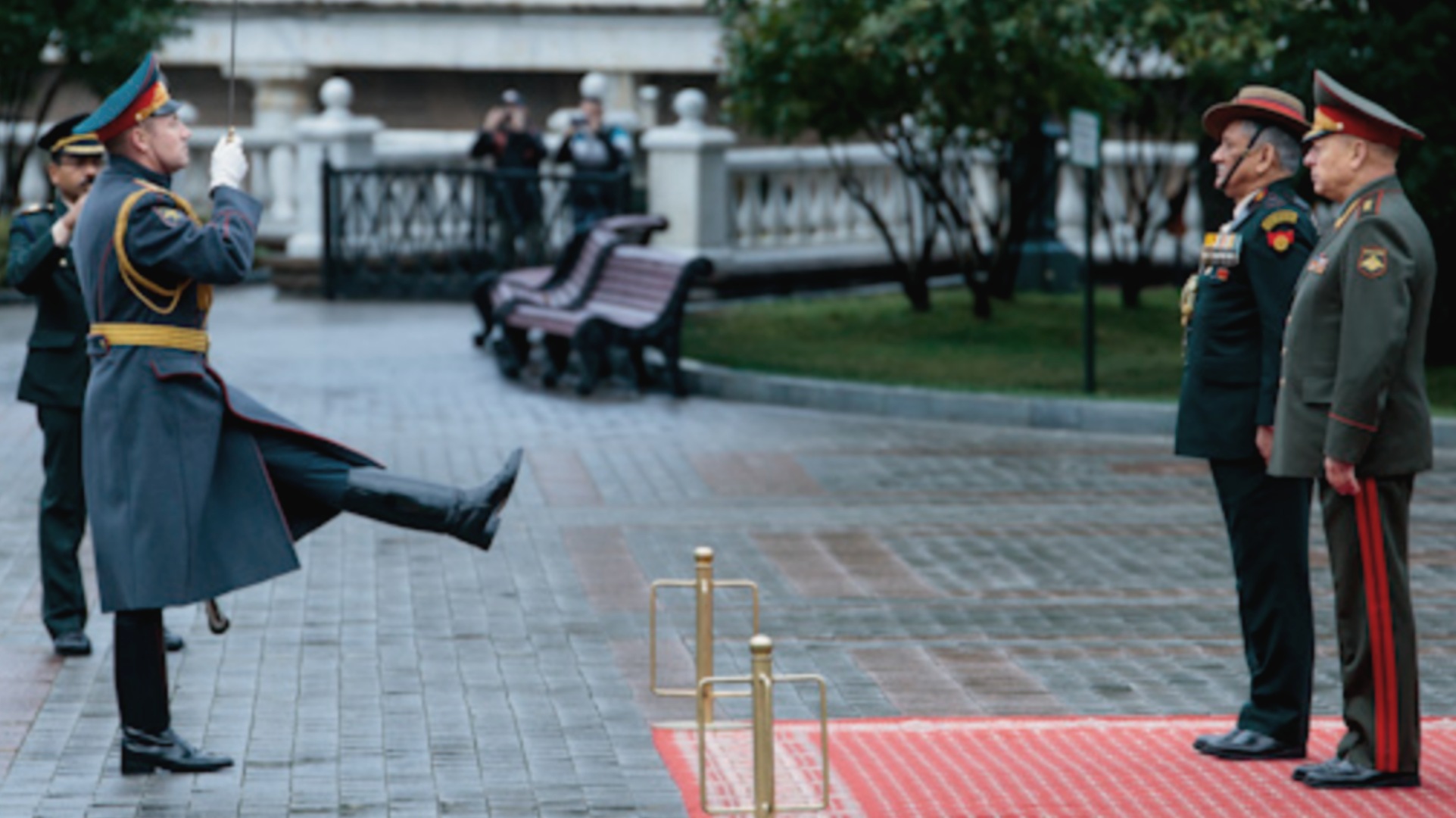If anything, the untimely and sudden demise of General Bipin Rawat, India’s first Chief of Defence Staff (CDS), has proved that the newly created office in December 2019 that he occupied is still in a stage of evolution.
And that explains why the Modi government is taking so much time to find a suitable successor to General Rawat, who was killed in a helicopter crash on December 8.
The first impression of the delay means that the office of the CDS that the Modi government had created after years of deliberations is not vital enough and can remain headless for some time, something that one is unlikely to see in any of the armed services, or for that matter in any top civilian/bureaucratic positions.
What was said when the office of the CDS was created, his tenure would be three years from the time he takes over. There were no mentions of any other standard criteria for occupying the post, except the fact that he will be a four-star officer from any of the three services.
And that includes the possibility of a three-star officer in any of the services being promoted to the post, a possibility that has been speculated in a section of the press under the plea that the government may consider a three-star officer if he is found to be as loyal to the government as General Rawat was.
But such a scenario seems highly improbable, given the fact that the CDS happens to be the “Permanent Chairman” of the Chief of the Staff Committee (COSC), consisting of the Chiefs of the Army, Navy and Air Force, all four-star officers and senior to a fresh promotee to the rank.
In the hierarchy-ridden military, and it is true of every country, a senior will not like to be superseded by a junior, even if the latter is given the same rank; he will prefer to resign to save his honor and dignity.

And this leads to another possibility. Can the Modi government recall a retired four-star General/Admiral/ Air Chief Marshall for the post of CDS? In fact, there is a school of thought that it will be good if either Air Chief Marshal RKS Bhadauria who retired earlier this year or the recently retired Indian Navy chief Admiral Karambir Singh is made the next CDS, as the government’s decision to promote jointness among the services by creating united theater commands, whose great advocate General Rawat was, will no longer be perceived as the Army-centric.
After all, there are instances, particularly in the United States, of retired military veterans being recalled for active duty. The best-known name in this regard is late Douglas MacArthur (1880-1964), who after graduating from the U.S. Military Academy at West Point in 1903, had risen to the rank of Chief of Army Staff before retiring in 1937.
But his real fame came when he was recalled to active duty in 1941 as the Commander of United States Army Forces in the Far East during World War II. He famously returned to liberate the Philippines in 1944 after it had fallen to the Japanese. Subsequently, he oversaw the successful Allied occupation of postwar Japan.
He also led United Nations forces in the Korean War, though during its course he clashed with President Harry Truman over war policy (he wanted the war to be extended against China and use of the nuclear weapons) and was removed from command. But that is a different story.
There was also the case of General Maxwell Davenport Taylor, who also played a major role towards the end of the Korean War. He presided over several massive exchanges of prisoners, helped expand the Republic of Korea’s army, and administered the US military assistance program for the Republic of Korea.

All this helped him become the Chief of Staff of the US Army in 1955, a position he served for four years till his retirement in 1959(during his tenure he advocated less reliance on the doctrine of massive nuclear retaliation to a Soviet attack and more dependence on the flexible response).
But President J F Kennedy recalled him in 1961, first as his military advisor. He was then appointed as the Chairman of the Joint Chiefs of Staff on October 1, 1962.
Though exactly not comparable, the fact also remains that in 2003, the then US Defense Secretary Donald H. Rumsfeld went outside the ranks of active-duty generals to pick a new military leader for the US Army and settled on General Peter J. Schoomaker, a retired four-star officer who left the Army three years ago after a career concentrated in the select and secretive world of Special Operations.
The point is that there is nothing that prevents the Modi government from emulating the US examples in choosing someone out of retirement for the post of CDS, if it so desires. The fact of the matter is that there are no fixed rules and regulations as yet as far as the office of the CDS is concerned.
It may be pointed out here that the Kargil- war (1999) had necessitated the Kargil Review Committee (KRC) under the Vajpayee government, on the basis of which India had established the first integrated command at Andaman.
And it is the same KRC that had recommended many reforms in the higher management of defense. The creation of the post of the CDS was the most important of them. And it is to the credit of the Modi government that it put that idea into shape.
But it is also a fact that KRC’s idea was implemented partially, not fully, by the Modi government. The CDC is not the commander of all the armed forces of the country; he is on a par with the three service chiefs in military status. He is not even the principal military adviser to provide impartial advice to the political leadership, something that the KRC had desired.
Similarly, the defense ministry is far from integrated; the CDC is one of the Secretaries in the Ministry of Defence, whereas as per the protocol, a four-star general (or equivalent) is supposed to be at par with the Cabinet Secretary, the country’s number one civil servant.
Even otherwise, the ‘Rules of Business’ of the Government of India adopted from the British continue to treat the Defence Secretary(not the Defence Minister, let alone the CDS) to be in charge of the defense of India. It was understandable during the colonial era, as the Defence Secretary of British India was also the Defence Minister, but it does not make any sense now.
Thus, the moral of the story is that reforms in the higher management of defense in India are still an ongoing exercise. So, it may not be a bad idea if the next CDS, unlike General Rawat, has a clear role and bolder responsibilities that are nearer to the recommendations of the KRC, both in letter and spirit.
- Author and veteran journalist Prakash Nanda has been commenting on politics, foreign policy on strategic affairs for nearly three decades. A former National Fellow of the Indian Council for Historical Research and recipient of the Seoul Peace Prize Scholarship, he is also a Distinguished Fellow at the Institute of Peace and Conflict Studies. CONTACT: prakash.nanda@hotmail.com
- Follow EurAsian Times on Google News




